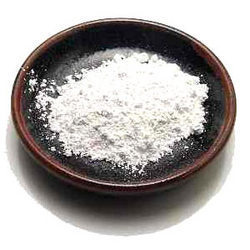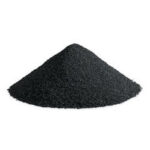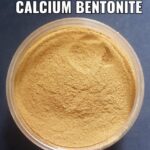Hydrated Lime(Calcium hydroxide)
We are the stalwarts in the domain of manufacturing, supplying, wholesaling, and exporting Hydrated Lime(Calcium These flavor grade chemicals are processed using pure and accurate ingredients that are procured from reliable and trusted vendors of the market. Our range is available in the market at leading prices in packs of different quantities.
 Hydrated lime ( Calcium Hydroxide or Slaked Lime ), also known as calcium hydroxide or slaked lime, has various applications in the construction industry due to its chemical properties and versatility.
Hydrated lime ( Calcium Hydroxide or Slaked Lime ), also known as calcium hydroxide or slaked lime, has various applications in the construction industry due to its chemical properties and versatility.
Here are some common uses of hydrated lime in construction:
Mortar and Plaster: Hydrated lime is used as an ingredient in mortar and plaster mixtures. It improves workability, plasticity, and cohesiveness, making the mortar easier to handle and spread. Hydrated lime also enhances the bond between the mortar and masonry units, improving the overall strength and durability of the structure.
Soil Stabilization: Hydrated lime is used for soil stabilization in construction projects. When mixed with clayey soils, it helps to reduce plasticity and improve load-bearing capacity. It also reduces the shrink-swell properties of expansive soils, minimizing the risk of foundation damage. Hydrated lime-treated soils have improved compaction, reduced moisture susceptibility, and increased long-term stability.
Asphalt Modification: Hydrated lime can be added to asphalt mixtures to enhance their performance. It acts as an anti-stripping agent, improving the adhesion between the asphalt binder and aggregate particles. This helps to prevent moisture damage and increase the lifespan of the pavement.
Waste and Effluent Treatment: Hydrated lime is utilized in the treatment of various wastes and effluents in construction projects. It can be used to neutralize acidic wastewater, control pH levels, and precipitate heavy metals. Hydrated lime is also employed in the stabilization and solidification of hazardous and contaminated materials.
Masonry Conservation: Hydrated lime is used in the restoration and conservation of historic masonry structures. It is mixed with traditional materials such as lime putty, sand, and aggregates to create compatible mortars and plasters that match the original construction. Hydrated lime allows for the breathability and flexibility of the masonry, minimizing the risk of damage caused by moisture.
pH Adjustment: Hydrated lime is employed for pH adjustment in various construction applications. It can be used to neutralize acidic soils, control pH levels in concrete mixtures, and stabilize pH in wastewater treatment systems.
Precipitation and Flocculation: In water treatment processes, hydrated lime is used for the precipitation and flocculation of impurities. It aids in the removal of suspended particles, heavy metals, and phosphates from water, contributing to improved water quality.
It is important to note that the specific application and dosage of hydrated lime may vary depending on the project requirements, local regulations, and engineering considerations. Consulting with experts and following recommended guidelines is crucial to ensure the appropriate use of hydrated lime in construction.
Hydrated Lime (Calcium Hydroxide), also known as calcium hydroxide (Ca(OH)2), has several uses and applications in the construction and other industries due to its chemical and physical properties.
Here are some common uses and applications of hydrated lime (Calcium Hydroxide):
Masonry Mortar: Hydrated lime is often used in mortar mixes for masonry construction. It improves workability and plasticity of mortar, making it easier to spread and work with. It also increases bond strength and durability of the mortar.
Plaster: In plastering applications, hydrated lime is used to improve the workability of the plaster mix. It also enhances the finish and durability of the plaster.
Soil Stabilization: Hydrated lime can be added to soils to improve their engineering properties. It is used for soil stabilization in road construction to increase the load-bearing capacity of the soil.
Asphalt Modification: In the construction of roads and pavements, hydrated lime can be added to asphalt mixes to improve their resistance to moisture damage and cracking. This is known as lime modification.
Wastewater Treatment: Hydrated lime is used in wastewater treatment plants to raise the pH of acidic wastewater and precipitate impurities such as heavy metals and phosphates.
pH Adjustment: It is used for pH adjustment in various industrial processes, including water treatment and chemical manufacturing.
Neutralization: In industrial processes where acidic waste is generated, hydrated lime is often used to neutralize the acidity, making it safer for disposal.
Flue Gas Desulfurization (FGD): In power plants and industrial facilities, hydrated lime is used as a sorbent in FGD systems to remove sulfur dioxide (SO2) from flue gases, reducing air pollution.
Construction Chemicals: Hydrated lime is an essential component in the production of construction chemicals such as lime-based paints, coatings, and sealants.
Brick and Tile Production: It is used in the manufacturing of bricks and tiles to improve their strength, durability, and workability.
Agriculture: In agriculture, hydrated lime is used to improve soil pH and provide essential calcium for plant growth. It can also be used to reduce soil acidity in fields.
Food Industry: Food-grade hydrated lime is used in food processing for various purposes, including pickling, as a food preservative, and in the production of certain food products like tortillas.
Water Treatment: In potable water treatment, hydrated lime can be used for softening hard water by precipitating calcium and magnesium ions.
Chemical Manufacturing: It serves as a reactant or catalyst in various chemical processes, including the production of calcium-based chemicals and compounds.
Paper Industry: In the paper industry, hydrated lime is used in the production of paper pulp and for treating pulp and paper mill wastewater.
It’s important to note that the specific application and dosage of hydrated lime can vary depending on the industry and the intended purpose. Also, the quality and purity of the hydrated lime used can significantly impact its effectiveness in various applications. Therefore, it’s crucial to use the appropriate type and grade of hydrated lime for each specific use case.
Hydrated lime, also known as calcium hydroxide (Ca(OH)2), finds applications in a variety of industries beyond construction. Here are some additional uses and applications of hydrated lime in various industries:
Mining Industry:
Hydrated lime is used in the mining industry to treat acid mine drainage, which is a common environmental issue associated with mining operations. It helps neutralize the acidity in mine wastewater and precipitates heavy metals.
Metallurgy:
In metallurgical processes, hydrated lime is used as a flux to remove impurities and control slag formation during the smelting and refining of metals such as gold, silver, and aluminum.
Chemical Industry:
Hydrated lime is used as a chemical reagent in various chemical processes, including the production of chemicals like sodium carbonate (soda ash) and sodium hydroxide (caustic soda).
Pulp and Paper Industry:
In addition to its use in wastewater treatment, hydrated lime is used in the pulp and paper industry to recover and regenerate chemicals used in the pulping process.
Textile Industry:
In the textile industry, hydrated lime can be used in the dyeing process to adjust the pH of dye baths and improve dye fixation on fabrics.
Pharmaceutical Industry:
Food-grade hydrated lime is used in the pharmaceutical industry as an excipient in the production of pharmaceuticals and as an antacid in some medicinal products.
Sugar Industry:
Hydrated lime is utilized in the sugar industry for the purification of sugar juice, which helps remove impurities and improve the quality of sugar crystals.
Oil and Gas Industry:
It is used in the oil and gas industry as a drilling mud additive to control the pH of drilling fluids and improve their performance.
Environmental Remediation:
Hydrated lime is used in environmental remediation projects to stabilize and solidify hazardous waste materials for safe disposal.
Air Pollution Control:
In addition to flue gas desulfurization (FGD) applications, hydrated lime can be used in dry sorbent injection systems to reduce emissions of acid gases, such as sulfur dioxide (SO2) and hydrogen chloride (HCl), from industrial processes.
Animal Feed Industry:
In animal nutrition, hydrated lime can be added to animal feed as a calcium supplement. It also helps control the pH of feed to improve nutrient absorption.
Water and Wastewater Treatment:
Apart from treating industrial wastewater, hydrated lime is used in municipal water treatment processes for softening hard water and for disinfection.
Electroplating Industry:
Hydrated lime is used in electroplating processes as a pH adjuster and for the treatment of wastewater generated during electroplating.
Leather Industry:
It can be used in the leather industry to treat hides and skins during the tanning process, helping to control pH and improve the quality of leather products.
Flavor and Food Preservation:
Food-grade hydrated lime is used in the food industry for preserving pickles and enhancing the flavor of certain foods.
The versatility of hydrated lime makes it a valuable industrial chemical with a wide range of applications, from environmental protection and water treatment to chemical processing and metallurgy. The specific grade and purity of hydrated lime required for each application may vary, so it’s essential to choose the appropriate type based on the industry and intended use.






